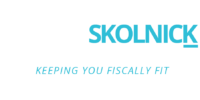
May
Once again there is news surrounding the Payroll Protection Program (PPP). Over the last few days, a group of 11 democrat and 8 republican senators have written Steve Mnuchin and SBA Administrator Jovita Carranza requesting an easing of the PPP loan forgiveness restrictions.
The first request made by these Senators to Treasury Secretary Mnuchin was to change the IRS position on the deductibility of expenses paid from PPP loan proceeds which are ultimately forgiven. The IRS had published Notice 2020-32 which stated that loan proceeds received under PPP which were forgiven were similar to tax exempt income. The Internal Revenue Code states that expenses related to tax exempt income are not deductible. Let’s take an example of a taxpayer borrowing $100,000 from a home equity loan. Home equity interest incurred after 2017 is not tax deductible unless it is for improvements on a home, however, it may be deductible as investment interest. Investment interest is deductible only to the extent of investment income. If the taxpayer incurred $4,000 of investment interest expense but only earned $2,000 of investment income (interest income and certain dividend and capital gains income that are taxed at ordinary (not long-term capital gain tax rates) are considered investment income), then only $2,000 would be deductible and the remaining $2,000 would carryforward to future years when additional investment income can be used to allow the deduction. If the taxpayer had $4,000 or more of investment income, then the entire $4,000 of interest expense becomes deductible. If, however, the proceeds were invested in tax exempt bonds, there would be no taxable interest income and therefore none of the interest expense would be deductible. The IRS used this logic to state that the expenses paid with PPP proceeds (payroll costs, rent utilities and mortgage interest) would not be deductible if the proceeds are forgiven.
The senators are stating that loan proceeds forgiven by PPP are not the same as tax exempt income, because tax exempt income is tax exempt by definition while PPP loan forgiveness is not. It is only exempt if certain conditions are met. Additionally, the senators state it was not their intention to deny the deduction to small businesses when the passed the CARES Act.
The second request which was sent to Treasury Secretary Munuchin and SBA Administrator Jovita Carranza asked that the non-payroll forgiveness cap be raised from 25% to 50%. Currently, in order to obtain loan forgiveness payroll costs (including health and retirement benefits for employees) must be at least 75% of the forgiven amount. The senators, again, are requesting that this figure be dropped to 50%.
My opinion is that since this is bipartisan and congress writes the law, it has an excellent chance of being changed. Obviously, I will keep you informed.
IRS ADDRESSES HOW TO RETURN AN ECONOMIC IMPACT PAYMENT RECEIVED IN ERROR
Some individuals have received economic impact payments (stimulus checks) that they are not entitled to. The most common example would be a deceased taxpayer received a check. Treasury Secretary Mnuchin has asked that taxpayers return these checks and the IRS addressed how to do this within their Economic Impact Payment Information Center FAQs. Question 41 of the FAQs along with the answer to the question was added on May 6, 2020 and is provided below.
Q41. What should I do to return an Economic Impact Payment (EIP)?
A41. You should return the payment as described below.
If the payment was a paper check:
- Write “Void” in the endorsement section on the back of the check.
- Mail the voided Treasury check immediately to the appropriate IRS location listed below.
- Don’t staple, bend, or paper clip the check.
- Include a note stating the reason for returning the check.
If the payment was a paper check and you have cashed it, or if the payment was a direct deposit:
- Submit a personal check, money order, etc., immediately to the appropriate IRS location listed below.
- Write on the check/money order made payable to “U.S. Treasury” and write 2020EIP, and the taxpayer identification number (social security number, or individual taxpayer identification number) of the recipient of the check.
- Include a brief explanation of the reason for returning the EIP.
For your paper check, here are the IRS mailing addresses to use based on the state:
If you live in…
then mail to this address
Maine, Maryland, Massachusetts, New Hampshire, Vermont
Andover Refund Inquiry Unit
310 Lowell St Mail
Stop 666A
Andover, MA 01810
Georgia, Iowa, Kansas, Kentucky, Virginia
Atlanta Refund Inquiry Unit
4800 Buford Hwy
Mail Stop 112
Chamblee, GA 30341
Florida, Louisiana, Mississippi, Oklahoma, Texas
Austin Refund Inquiry Unit
3651 S Interregional Hwy 35
Mail Stop 6542
Austin, TX 78741
New York
Brookhaven Refund Inquiry Unit
5000 Corporate Ct.
Mail Stop 547
Holtsville, NY 11742
Alaska, Arizona, California, Colorado, Hawaii, Nevada, New Mexico, Oregon, Utah, Washington, Wisconsin, Wyoming
Fresno Refund Inquiry Unit
5045 E Butler Avenue
Mail Stop B2007
Fresno, CA 93888
Arkansas, Connecticut, Delaware, Indiana, Michigan, Minnesota, Missouri, Montana, Nebraska, New Jersey, Ohio, West Virginia
Kansas City Refund Inquiry Unit
333 W Pershing Rd
Mail Stop 6800, N-2
Kansas City, MO 64108
Alabama, North Carolina, North Dakota, South Carolina, South Dakota, Tennessee
Memphis Refund Inquiry Unit
5333 Getwell Rd Mail
Stop 8422
Memphis, TN 38118
District of Columbia, Idaho, Illinois, Pennsylvania, Rhode Island
Philadelphia Refund Inquiry Unit
2970 Market St
DP 3-L08-151
Philadelphia, PA 19104
A foreign country, U.S. possession or territory*, or use an APO or FPO address, or file Form 2555 or 4563, or are a dual-status alien.
Austin Refund Inquiry Unit
3651 S Interregional Hwy 35
Mail Stop 6542 AUSC
Austin, TX 78741
Join me, Every Monday at 12:30pm (EST) here: https://www.facebook.com/jeffcpaworld/
If you’d like to book an appointment with me, please click on the link below:
Hang in there and stay safe,
Jeff Skolnick, CPA, M.S. Taxation
